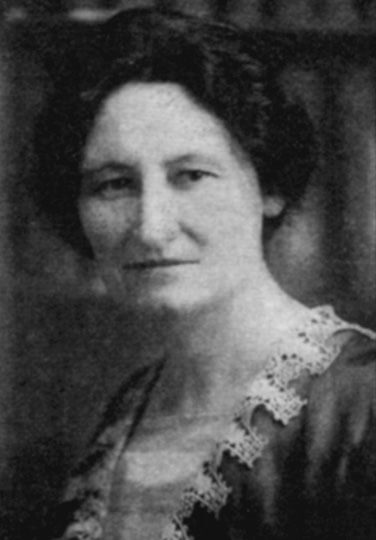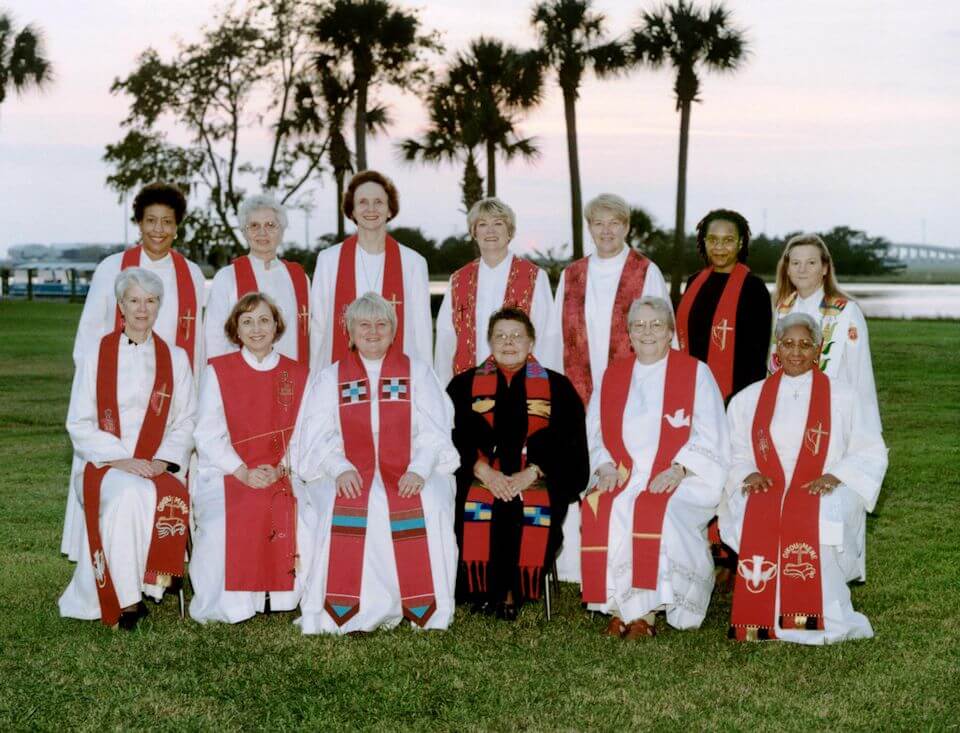In the life of Methodism, clergywomen have often been omitted from full participation in the life of the Church. Yet, clergywomen, and those who advocated for women’s right to the pulpit, carved out a significant space of equity for women in the pulpit. Because clergywomen are now visible and accessible, young women and girls have hope to see that there are no obstacles to the gift of prophecy and preaching. For fifty years, the General Commission on the Status and Role of Women worked diligently to maintain that crafted space for women, both in the pulpit and in the pews, as a way for women to be leaders in their churches and in their communities. The mission for GCSRW has not changed and it continues to provide the guidance for their work in the future.
50th Anniversary blog series:
There are a number of incredible women that contributed to the efforts for permitting women to preach. While John Wesley never condemned their presence outright, he also never gave full permission to equality of women and men. Yet, his attempts to persuade women to continue to develop their vocational calls and situate them within the cultural provisions gave hope for women like Mary Bosanquet Fletcher to preach without fear or failure and to advocate for other women to follow her.
The history of women’s admission to the clergy is one fraught with denial and refusal to see women as full persons within the Church. Through multiple General Conferences, memorials and petitions arrived to advance women to licensure to preach or to full connection of the clergy, but they lost steam or got caught up in contentious debate. By 1920, when women were afforded the right to vote in the United States, one specific woman sought to bring the issue of women’s preaching to rest, M. Madeline Southard.

M. Madeline Southard - Southwestern College of Kansas.
Born and reared in Kansas, Southard learned how to advocate for women’s rights from one of the best organizers in history, Frances Willard. As a part of the Women’s Christian Temperance Union speaker’s circuit, Southard learned how to preach on soapboxes and street corners about the social ills of society and calling Christians to participate in their calling to social holiness. Her popularity gained her entré to local pulpits in Kansas, where she would fill pulpits of those congregations who also felt it was time for women to preach. Southard received enough votes to be a General Conference delegate in 1920 and 1924. Prior to the 1920 conference, she published her thesis, The Attitude of Jesus Toward Women and an article in The Methodist Review entitled “Woman and the Ministry.” She sent copies of her Review article to every General Conference delegate in 1920 with a personal letter requesting that they advance the right of women to the pulpit.
In 1920, her efforts failed, but the vote was a very thin margin. When the issue arrived back to the committee in 1924, the General Conference finally approved women’s licensure and ordination, but refused to give them full connection and an equal status to that of clergymen. Women had a right to the pulpit in the Methodist Episcopal Church until 1939, when it was revoked with the merger of the Northern and Southern branches of the MEC and the Methodist Protestant Church. The new Methodist Church took 17 more years to approve women to full connection within clergy ranks, with women’s ordination officially happening in 1956.
While it was a rocky road, the efforts of M. Madeline Southard and so many other men and women who joined her cause brought hope and healing to many women within the Methodist connection. Frances Willard always wanted to pursue ordination, but never saw the opportunity come to fruition while she was alive. Georgia Harkness assisted in Southard’s efforts until they came to full passage in 1956. Harkness even saw the advancement of GCSRW through legislative means to be an agency to hold Methodist structures accountable to full participation of women, lay and clergy, within the denomination. These women brought hope to those who came long after, because they removed so many of the hurdles that were keeping women from advancing their vocational calls. These clergywomen provided healing to so many who had been previously scorned by attempting to follow their calls.
The work of clergywomen continued long beyond 1956, as they sought full participation for women in all levels of the church structures, including the episcopacy. In 1980, the election of Marjorie Matthews as a bishop in the North Central Jurisdiction issued in a new era, one in which women had some type of access to the highest levels of leadership in the denomination. However, Matthews’s election also marked the first Protestant female bishop in American history. In 1984, Leontine T.C. Kelly received enough votes to become a bishop in the Western Jurisdiction, making her the first woman of color episcopal leader in American Christian history. Within twenty years of Matthews’s election, fourteen women would be promoted by election to the denomination’s highest office, including election of multiple women of color and one within every jurisdiction. In 2005, Rosemarie Wenner became the first woman elected to the episcopacy within a UMC Central Conference (Germany), with the election of Joaquina Filipe Nhanala following just three years later in the Mozambique conference.

A gathering of some of our UMC Bishops.
Every Sunday, in pulpits across the world, clergywomen offer hope and healing to their congregations. They are empowered and uplifted by the work of so many of our foremothers who sought egalitarian means to match that of a theology based in the work of equality that Jesus offered. In this final week of Women’s History Month, we celebrate the clergywomen of Methodism, whether they were given the title officially or not, for their diligence to their vocational callings, but also to the generations that followed them. For their perseverance, women today have the hope to follow their calls with joy and zeal, offering the opportunity for healing to all people connected to the pulpits and congregations they serve. It is for this hope that GCSRW continues its mission for full participation of women in the life of the church, for while there is work to be celebrated, it is evident by our past work that there is still significant work to be done.
Bibliography:
- Chilcote, Paul Wesley. The Methodist Defense of Women in Ministry: A Documentary History. Eugene, Oregon: Cascade Books, an imprint of Wipf and Stock Publishers, 2017.
- Craig, Judith, ed. The Leading Women: Stories of the First Women Bishops of the United Methodist Church. Nashville, TN: Abingdon Press, 2004.
- Du Mez, Kristin Kobes. “Selfishness One Degree Removed: Madeline Southard’s Desacralization of Motherhood and a Tradition of Progressive Methodism.” Priscilla Papers 28, no. 2 (Spring 2014): 17–22.
- Irons, Kendra Weddle. “M. Madeline Southard (1877-1967) on ‘Ecclesial Suffrage.’” Methodist History 45, no. 1 (October 2006): 16–30.
- Noll, William T. “A Welcome in the Ministry: The 1920 and 1924 General Conferences Debate Clergy Rights for Women.” Methodist History 30, no. 2 (January 1992): 91–99.
- Schmidt, Jean Miller. Grace Sufficient. Nashville: Abingdon Press, 1999.
- Southard, M. Madeline. “A Memorial.” Memorial to 1920 General Conference of the Methodist Episcopal Church. Des Moines, Iowa: The Methodist Episcopal Church, May 5, 1920. MC647 / 9-6. Schlesinger Library, Radcliffe Institute, Harvard University.
- ———. Letter. “Letter from Madeline Southard to 1920 General Conference Delegates.” Letter, May 5, 1920. MC647 / 9-6. Schlesinger Library, Radcliffe Institute, Harvard University.
- ———. The Attitude of Jesus toward Woman. Stroudsburg, Pa: International Association of Women Ministers, 1999.———. “The Ministry as a Vocation for Women.” The Woman’s Pulpit. October 1923, Vol. 1, No. 56 edition. The Records of the International Association of Women Ministers, 1922-2001. The Archive of Women in Theological Scholarship, The Burke Library, Union Theological Seminary.
- Thompson, Patricia J. Courageous Past - Bold Future: The Journey toward Full Clergy Rights for Women in the United Methodist Church. Nashville, Tennessee: General Board of Higher Education and Ministry, the United Methodist Church, 2006.

About the author
Rev. Emily Nelms Chastain is a PhD student at Boston University, where she focuses on 19th and 20th Century American Christian History and the intersectionality of faith and gender. She earned her B.A. in History at the University of Alabama at Birmingham in 2007 and graduated with an M.A. Religion and M.Div. in 2019 from Claremont School of Theology. She's an ordained United Methodist Deacon in the North Alabama Conference, and entered academia after serving for 9 years within the United Methodist Church where she worked in Connectional Ministries. Emily served as a reserve delegate to the 2016 General Conference and as a delegate for the 2016 Southeastern Jurisdictional Conference. She has served on the GCSRW board since 2016.
